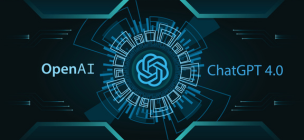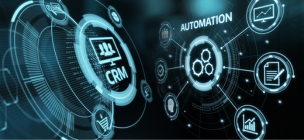RPA Examples
RPA (Robotic process automation) is a technology that automates repetitive and routine tasks by modeling human interaction with computer systems using software robots or "bots". This technology enables manual, time-consuming and erroneous processes to be automated and used valuable time and resources for more strategic activities.

RPA uses are used in various sectors and industries such as finance, healthcare, insurance, automotive, service sector, retail and manufacturing, and it accelerates transactions, reduces costs and increases efficiency.
What Can Be Done With Robotic Process Automation (RPA)?
RPA has numerous applications in a wide variety of industries. For example, in the financial services industry, RPA can be used to facilitate mortgage processing and fraud detection. In healthcare, RPA can assist with insurance claims processing and patient data management. In the logistics sector, RPA (Robotic Process Automation) can track vehicle fleets and reports. In the retail industry, RPA can improve supply chain management and inventory tracking.
Why is RPA Important?
The importance of RPA is that it can reduce the risk of human error and increase productivity by automating routine and repetitive tasks.
As a result, RPA has the potential to revolutionize the way organizations work, and RPA applications are limited only by imagination. Whether you're looking to automate data entry tasks, streamline customer service inquiries, or improve supply chain management, RPA is a technology worth considering.
In Which Fields Is RPA Used? RPA Usage Areas
RPA (Robotic Process Automation) is used in a wide variety of industries and fields including but not limited to:
• Financial Services: RPA can facilitate mortgage processing, fraud detection, and other financial transactions.
• Logistics Services: RPA can streamline shipping and tracking processes.
• Healthcare: RPA can assist with insurance claims processing, patient data management and appointment scheduling.
• Retail: RPA can improve supply chain management and inventory tracking.
• Human Resources: RPA can automate tasks such as resume scanning and hiring processes.
• Telecommunications: RPA can assist with network maintenance and customer service.Automate routine customer service inquiries and support tasks such as answering frequently asked questions or forwarding requests to the appropriate department.
• Governments: RPA can automate tasks such as tax processing, welfare administration, and citizen services.
• Manufacturing Industry: RPA can improve production line management and supply chain optimization.
• Information Technologies: Rpa can perform user password reset or application update.
These are just a few examples, and the applications of RPA are constantly expanding as technology advances.

What Are RPA Applications?
You can optimize your processes with service providers such as RPA (Robotic Process Automation) applications, UiPath, Automation Anywhere, Blue Prism, GenRpa.
Another advantage of RPA applications is that they can be integrated with existing systems, allowing businesses to adopt and implement them more easily. This integration enables the communication between different software programs, improving data quality and increasing process efficiency.efficiency.
RPA technology and RPA services are highly scalable and can be customized to the needs of any business. This scalability and customization capability means businesses can automate processes ranging from data entry to billing and customer service.
The future of RPA technology is also expected to bring forward advances and improvements, making it even more beneficial for businesses.











